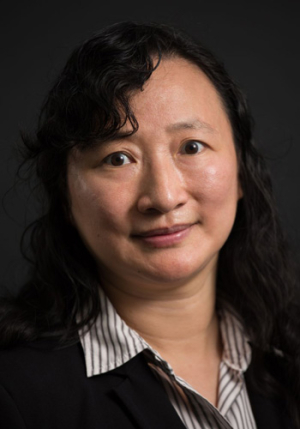The days of worrying whether it’s safe to pay a bill online may soon be over. Such encrypted transmissions could end up immune to hackers thanks in part to the efforts to Yuhua Chen, associate professor of electrical and computer engineering at the Cullen College of Engineering. Chen is collaborating on a three-year $500,000 grant from the National Science Foundation to help develop an uncrackable form of data encryption that is ideal for protecting the most sensitive information sent over the internet.
This approach is a new spin on quantum cryptography. It takes advantage of the basic principles of quantum mechanics, the study of how the smallest possible particles of matter and waves of energy behave. In short, they act far differently from the world we experience in our day-to-day lives.
Photons, the smallest possible units of light, are quantum objects. Photons can have multiple field orientations, known as polarizations. Before they are directly studied, though, they will exhibit the characteristics of not just one, but several different orientations at the same time. It is only when they are tested that they take on a single state, in which they permanently remain.
The cryptography being developed by Chen and her collaborators is based on this phenomenon. Under this system, the piece of information that is used to encrypt and decrypt data (called the key) consists of a series of photon exchanges between the sender and the recipient.
Under the method Chen and her collaborators are developing, then, it would not matter if a hacker intercepts these photons as they travel from sender to recipient. Since photons take on a random orientation when they are intercepted, they would offer no useful information on their own.
This offers a significant step up from traditional cryptography techniques, which, in theory, can be broken with enough computing power. “In quantum cryptography, if the key is equal to the data length – say a 100 bit key for a 100 bit transmission – it’s been proven that a data transmission is absolutely secure. If you can transmit a set of keys securely with quantum cryptography methods, then you can have absolute secure transmission of the data itself. No method could crack the data,” Chen said.
This level of security would be ideal for transmitting everything from banking data to sensitive information involving national security, she said.
Chen is collaborating on this grant with Pramode Verma of the University of Oklahoma -Tulsa, and Subhash Kak, from the Oklahoma State University.
